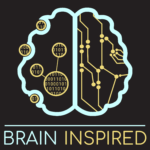


Mark and I discuss a wide range of topics surrounding his Interactivism framework for explaining cognition. Interactivism stems from Mark’s account of representations and how what we represent in our minds is related to the external world – a challenge that has plagued the mind-body problem since the beginning. Basically, representations are anticipated interactions with the world, that can be true (if enacting one helps an organism maintain its thermodynamic relation with the world) or false (if it doesn’t). And representations are functional, in that they function to maintain far from equilibrium thermodynamics for the organism for self-maintenance. Over the years, Mark has filled out Interactivism, starting with a process metaphysics foundation and building from there to account for representations, how our brains might implement representations, and why AI is hindered by our modern “encoding” version of representation. We also compare interactivism to other similar frameworks, like enactivism, predictive processing, and the free energy principle.
For related discussions on the foundations (and issues of) representations, check out episode 60 with Michael Rescorla, episode 61 with Jörn Diedrichsen and Niko Kriegeskorte, and especially episode 79 with Romain Brette.
- Mark’s website.
- Related papers
- Interactivism: A manifesto.
- Plenty of other papers available via his website.
- Also mentioned:
- The First Half Second The Microgenesis and Temporal Dynamics of Unconscious and Conscious Visual Processes. 2006, Haluk Ögmen, Bruno G. Breitmeyer
- Maiken Nedergaard‘s work on sleep.
Timestamps
0:00 – Intro
5:06 – Previous and upcoming book
9:17 – Origins of Mark’s thinking
14:31 – Process vs. substance metaphysics
27:10 – Kinds of emergence
32:16 – Normative emergence to normative function and representation
36:33 – Representation in Interactivism
46:07 – Situation knowledge
54:02 – Interactivism vs. Enactivism
1:09:37 – Interactivism vs Predictive/Bayesian brain
1:17:39 – Interactivism vs. Free energy principle
1:21:56 – Microgenesis
1:33:11 – Implications for neuroscience
1:38:18 – Learning as variation and selection
1:45:07 – Implications for AI
1:55:06 – Everything is a clock
1:58:14 – Is Mark a philosopher?
